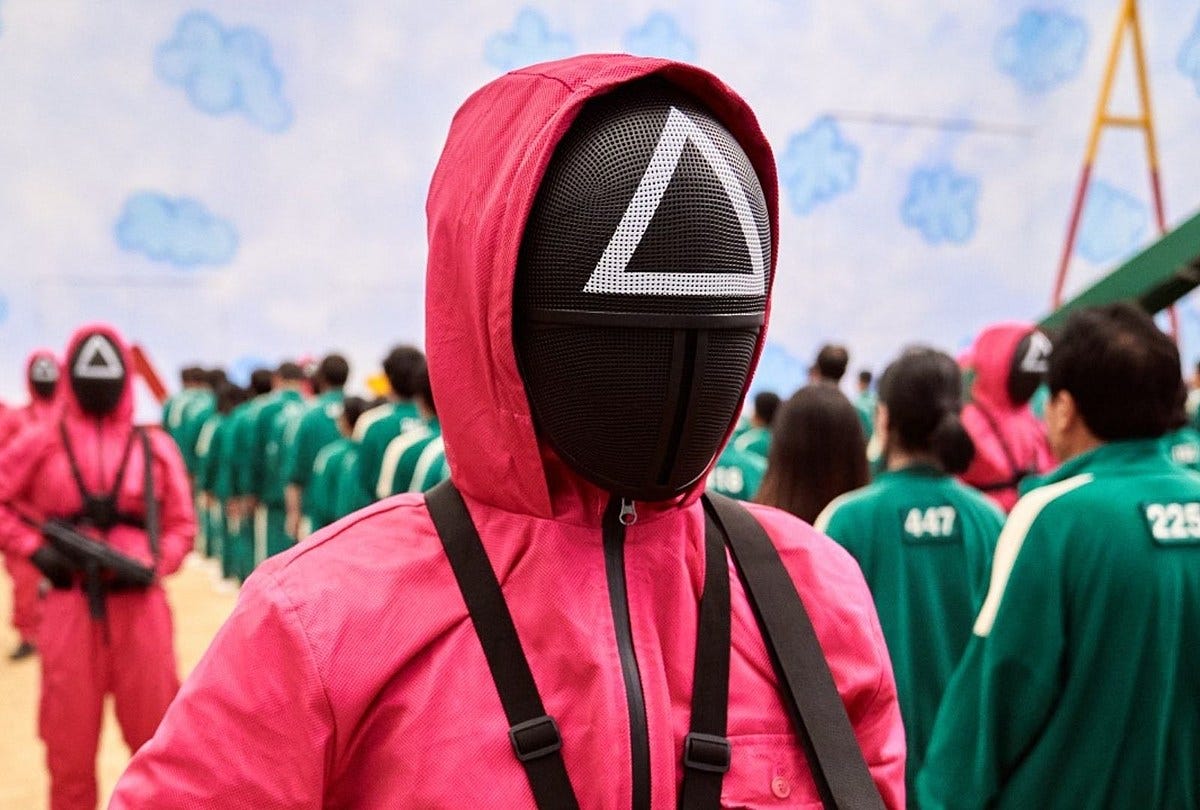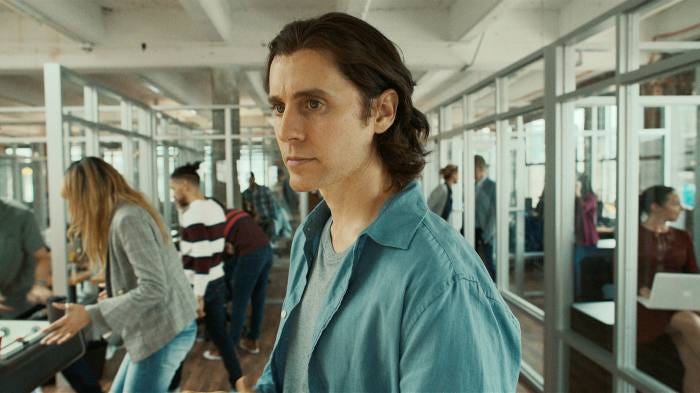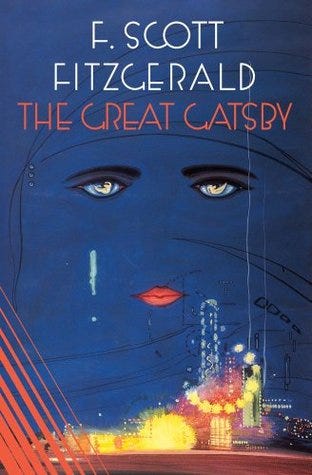Growing up, I was bombarded with US rich-kids stories. It all started in the 90s with Beverly Hills 90210 and moved into The O.C in the 2000s, later becoming Gossip Girl, although (I'm sorry to say?) I haven't watched much of the latest.
Although all of those shows were about really problematic kids, their lifestyles were highly envied and seen in a positive light. They were handsome, skinny, white, and had the world in the palm of their hands. In spite of their unsupportive and distant parents, drug use, or whatever teenage drama the shows threw at them, they were shown as aspirational.
Something seems to have drastically changed as I watch some of the new television shows nominated for the Emmys this year, and those that have won. Although most of them still focus on rich people, they do not portray them in a positive light. The rich have become the villains.
Probably the first TV series that comes to your mind is Succession, which leads me to confess that I haven't watched it. The first episode completely put me off. I didn't want to watch rich people being awful. There's already much of that in real life, especially on Twitter.
White Lotus
As with Succession, White Lotus' spoiled characters left me so irritated that I didn't want to continue watching it after episode 2. But, unlike Succession, White Lotus is a mini-series, with only 6 episodes, so I pushed through to finish it. And I’m glad I did.
It is one of those shows that get you thinking about it long after you have finished it. And that's usually a sign of quality. (Or sometimes it is just so terrible that you find yourself furiously thinking about how bad it was).
White Lotus excels in creating this microcosm of rich white people on vacation at a Hawaiin resort to explore privilege, colonialism, racism, and misogyny all at once.
And it's well done. The characters are all awful in their own way. Using or exploring others subordinate to them, either by race or money. And they do so in very insidious ways, just like in reality.
Although it's clear that they think themselves to be "nice" people, White Lotus demonstrates how they are constantly exploiting others or at least failing to act in a positive way.
Probably the most interesting relationship is between Olivia (Sydney Sweeney) and Paula (Brittany O'Grady). At first glance, these two young girls appear progressive, but their behavior proves otherwise. Paula is a person-of-color and she sees an imbalance in her friendship with white rich Olivia.
Paula hooks up with a resort employee who asks her why is she hiding it from her friend. She explains that Olivia has recently stolen a boyfriend from her, and tells her new beau: “Olivia doesn't like me having anything that is only for me.”
This is an excellent metaphor for white people who seem like allies at first, but in fact, aren't. Olivia uses her friend and only believes they are equal as long as Paula doesn't have something that she doesn't.
Round 6 (Squid game)
Round 6 is fresh in my memory; I skipped the hype and only watched it a week ago. It lives up to its large enthusiastic audiences and its Emmy awards, being a very entertaining show. But being a Korean series, and having been compared with Parasite, I expected a more profound social critique.
Rich people are villains, literally playing with the lives of those that are in debt. However, the rich men running the game often feel like caricatures, especially since they are portrayed with thick American accents, contrasting with the show's Korean.
More interesting, is the character Cho Sang-woo (Park Hae-soo), a former head of an investment team at a securities company and childhood friend of the main character Seong Gi-hun. Although he is highly respected by his community, he is ruthless, which is an outright criticism of the business-like competition at all costs mentality.
South Koreans have been struggling with debts that had exceeded 100% of the country's GDP at the time the show was added to Netflix. Those in debt are exactly the ones lured into playing the game. This seems like an accurate portrayal of how one could take advantage of those in a vulnerable position.
But although the writers intended the show to be about inequality, I found it too violent and lacking some depth. It is still highly entertaining, though.
Dopesick
Dopesick tells the story of real-life villains the Sackler family, the owner of Purdue Pharma and responsible for the Opioids crisis the US is still grappling with.
Probably the only show nominated that has no sympathy for the rich.
Michael Keaton is the leading actor playing Dr. Samuel Finnix and the producer of the show. He also deservedly won an Emmy for his role.
Despite seeing how he lives and how his family is ruthless, we can't sympathize with the man responsible for OxyContin: Richard Sackler. He is someone that decisively and constantly puts profit over the lives of patients, over and over again. He generated lies, and false propaganda and bought doctors' and federal agents' alliances by hiring them.
His only saving characteristic is that he seems like a sad person living a deeply sad life, no matter how rich and successful he is.
Drugsick shows how crucial it is for people to fight back and the State to act in favor of the unprivileged, even if it means taking on a billion-dollar drug company and a wealthy family. And how easy it is for big companies to manipulate politicians and federal agents to do whatever they wish to.
Terrible CEOs and companies
I have written before about Severance, so I won't go into too much detail here. I'll just say it is well worth the watch. It is a dystopia commenting on the state of our work lives. Just like Dopesick, Severance's company is run by a rich family that sees themselves as a dynasty. And just like Dopesick, their unhinged ambition is changing society in malicious and uncontrolled ways. However, Severance is not based on a real story and has yet to explore the family running the company and its motivations fully.
There are other Emmy-nominated shows such as the Dropout and WeCrashed that also explore the workplace and their awful heads, telling the story of two tech companies: Theros and WeWork. They critique the larger-than-life personalities that developed these start-ups and brought them to ruin by basically being awful people.
Unscrupulous, rich, ambitious, and on leadership don't seem like a great combo in these stories.
Are we bringing the billionaires down?
Artists tend to explore the society we are living in. Even futuristic and dystopian books such as Fareinhet 451 - which continues to be meaningful today - say much more about when it was written in the 50s, than the future itself.
I find it highly meaningful how those stories are coming to be now when inequality is so rampant and clear everywhere. Being maybe my favorite topic, I love to see how different writers explore it in new tv shows, movies, and books.
Especially, it contrasts a lot with former 90s and 2000s shows, which painted the rich as highly inspirational.
Still, of course, not all current tv series explore this topic, which would honestly be boring. And ostentation and rich-people lifestyles continue to be central and seen in a positive light in many shows released on streaming platforms, especially reality shows.
Most of all, pop social critique as Squid Game has shown to sell. It was the show with the most watch time for a long period on Netflix and just earned 6 Emmy awards last week. It will be no surprise if we keep on having stories on this theme in the future.
Still, I believe it is a step forward. Stories have a lot of power, and when told well can have a significant impact.
Shows like Dopesick can have an immense potential to create empathy with those suffering from opioid addiction. It also gives hope. That it is possible to fight against extremely wealthy people, even if no one in the Sackler family has faced criminal prosecution, and retain much of their wealth.
In a world that feels like we don't have any power and only profit matters, those stories can have a significant impact. It can change public opinion and ignite change.
It can spark new conversations and move perspectives. It can at least make us think, which I think is the most important aspect of art.
What to read?
The Great Gatsby (F. Scott Fitzgerald). Gatsby is consumed with being rich and having lavishing parties in which people can relish his success. He is a self-made man and seems to have everything, but he doesn't have the only thing that matters to him: love. The book plays with the idea of the American Dream that made everything seem so attainable in the rich Jazz Era.
What to watch?
American Psycho. Wall Street yuppie Patrick Bateman (Christian Bale) is fixated on success, prestige, and fashion. He also kills, rapes, and mutilates acquaintances and total strangers alike without cause or provocation. The movie is a harsh critique of a society in which greed is regarded as a virtue.
What to binge?
Dopesick. Michael Keaton lost a nephew to the Opioids crisis which made him produce and star in this show. As I said before it's worth watching, my only complaint is how they deal with the timeline. The show jumps from year to year multiple times in a single episode. It is extremely hard to follow the timeline and understand what took place and when.
They could've solved it by using the most effective way common in audiovisuals: changing the character's hair. It's possible that they choose not to because they were representing actual individuals, but it would have made Dopesick much simpler to understand.













